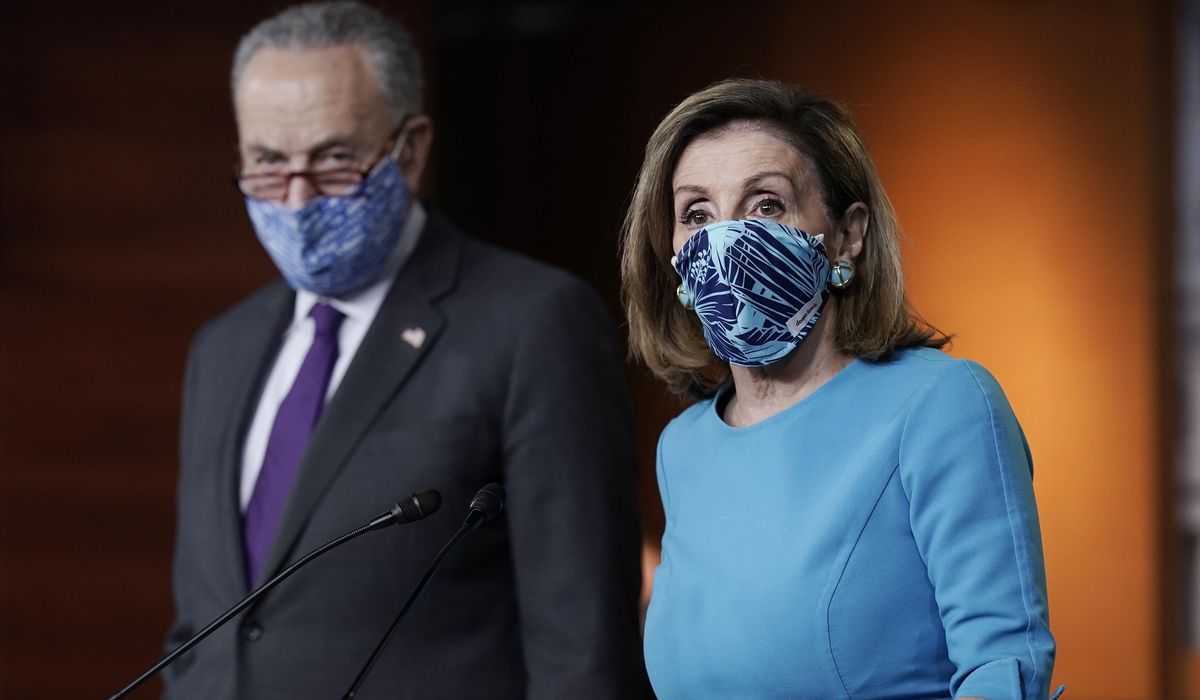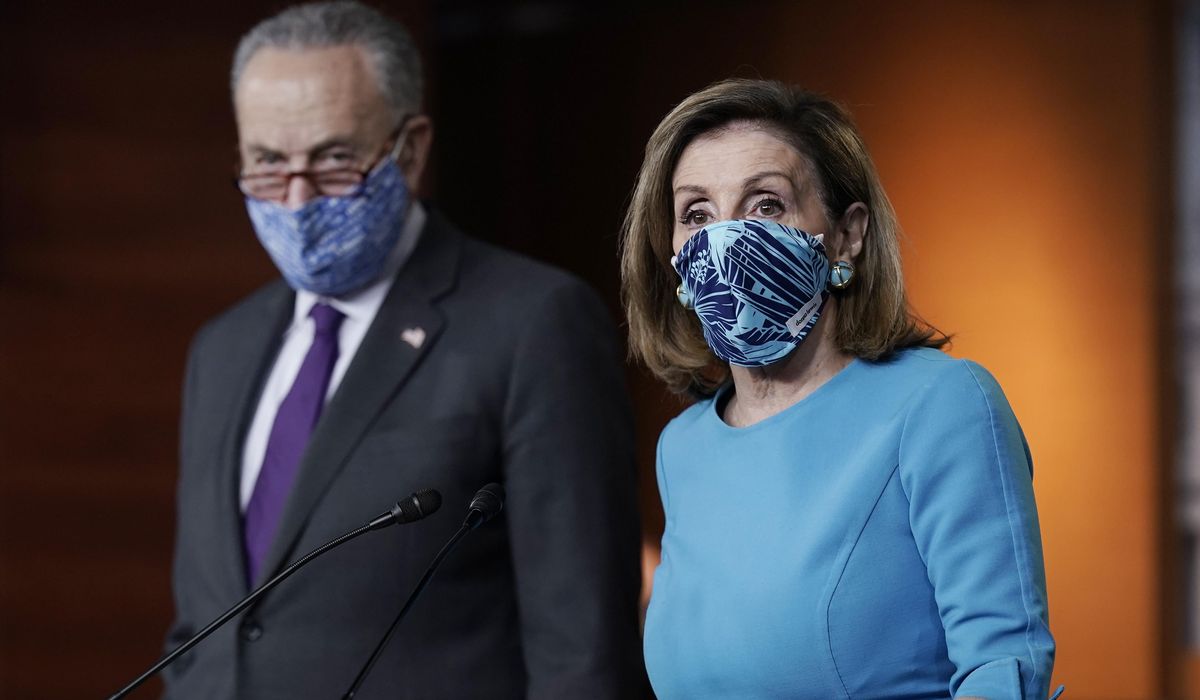
Congressional Democratic leaders on Monday set themselves on the road to a potential government shutdown and a default on U.S. debt by the end of the month.
House Speaker Nancy Pelosi of California and Senate Majority Leader Charles E. Schumer of New York announced they would seek to suspend the debt ceiling until the end of December 2022. They also said they will link the move to a broader stopgap funding bill meant to keep the government afloat until at least the end of this year.
“Both Republicans and Democrats have priorities they want to see addressed … and an extension of government funding through December will provide an appropriate amount of time for that bipartisan, bicameral process to come to completion,” they said in a joint statement. “The legislation to avoid a government shutdown will also include a suspension of the debt limit through December 2022 to once again meet our obligations and protect the full faith and credit of the United States.”
Mrs. Pelosi has already pledged to secure House passage of the measure later this week. But within the evenly split Senate, any measure to hike the debt ceiling faces long odds.
Republicans say Democrats should unilaterally suspend the cap on the debt ceiling, a limit on how much the government can borrow to pay for federal expenditures. Many in the GOP say that if Democrats are content to pass President Biden’s $3.5 trillion expansion of the federal safety net along party lines, they should then be responsible for its impact on the debt.
“Democrats are intent on going on a reckless spending spree — spending money we don’t have on things we can’t afford, which will fuel runaway inflation and harm American families,” Sen. Ted Cruz, Texas Republican, told The Washington Times. “Despite the fact Democrats have total control of Washington and can raise the debt ceiling on their own, they are playing political games with the debt ceiling.”
Mrs. Pelosi and Mr. Schumer claim the stance taken by Republicans is reckless, arguing that current U.S. debts were accumulated under prior administrations, including that of former President Donald Trump.
“Addressing the debt limit is about meeting obligations the government has already made, like the bipartisan emergency COVID relief legislation from December as well as vital payments to Social Security recipients and our veterans,” they said.
Senate Minority Leader Mitch McConnell, Kentucky Republican, disagrees. He said on Monday that Democrats could deal with the debt ceiling using budget reconciliation.
The process, which Democrats are using to pass Mr. Biden’s $3.5 trillion social welfare package, allows some spending and tax measures to avoid a filibuster and pass with a simple majority of 51 votes.
“We do not have divided government. Democrats do not need our help,” Mr. McConnell said. “They have every tool to address the debt limit on their own, the same party-line process they used to ram through inflationary spending in March and already plan to use once again this fall.”
Mr. McConnell, who has already pledged that no Republican will vote to hike the debt ceiling, said bipartisan support existed for a “standalone” bill to keep the government running.
“Senate Republicans would support a clean continuing resolution that included appropriate disaster relief and targeted Afghan assistance,” he said. “We will not support legislation that raises the debt limit.”
Democrats are unwilling to entertain the idea, as it would remove any leverage they have to get out of raising the debt ceiling unilaterally via budget reconciliation.
Raising the debt ceiling along party lines would require congressional Democrats to specify a dollar amount. Many lawmakers, especially vulnerable Democrats facing tough reelection battles, don’t want to be on record for hiking the federal debt above the current limit of $28.5 trillion.
“We can do it through reconciliation. Leadership has said they don’t want to do that,” said House Budget Committee Chairman John Yarmuth, Kentucky Democrat, on MSNBC. “The reason is if we do that through reconciliation, we actually have to specify a number.”
With Mr. McConnell vowing that no Republicans will back a vote to hike the debt ceiling and Democrats unwilling to do it unilaterally and tying it to the stopgap measure, Congress faces a potential government shutdown on Sept. 30.
At the moment, neither side appears willing to compromise. Mrs. Pelosi and Mr. Schumer are warning lawmakers to prepare for a series of long nights over the next month.








